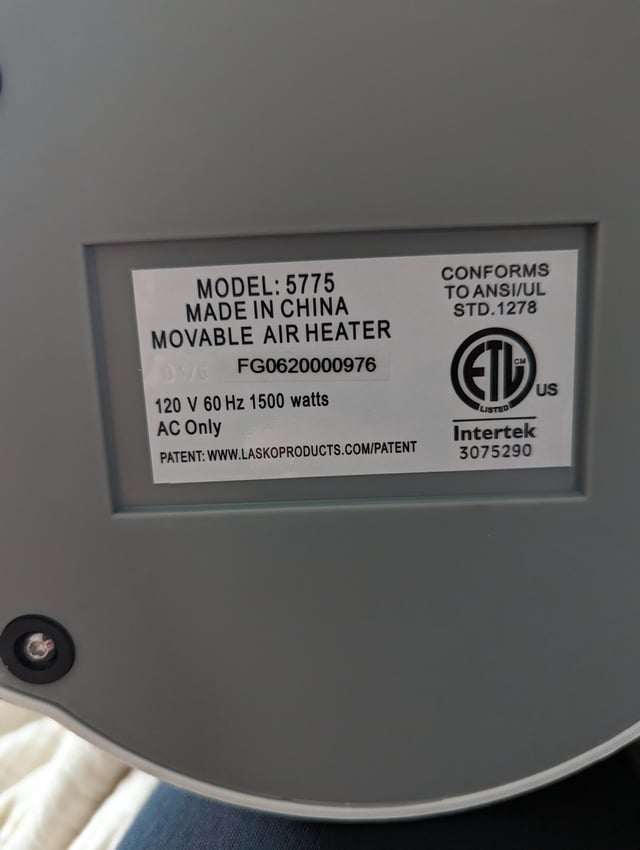To stop your heater from tripping the breaker, check for overloads and ensure the heater is connected to a dedicated circuit. Inspect the heater for any damage, and clean or replace filters regularly.
Heating systems are essential for comfort during cold months, but frequent breaker trips can be frustrating. Breakers trip mainly due to overloaded circuits or faulty equipment. Regular maintenance and proper usage can prevent these issues. Understanding how your heater operates and its power requirements is crucial.
This knowledge helps you troubleshoot problems effectively. By following some simple steps, you can keep your heater running smoothly without interruptions. Taking proactive measures not only extends the life of your heater but also ensures a warm and cozy environment.
Common Reasons Heaters Trip Breakers
Heaters are essential during cold weather. A heater tripping the breaker can be frustrating. Understanding why this happens can help you resolve the issue quickly. Here are some common reasons why heaters trip breakers.
Faulty Wiring And Electrical Issues
Faulty wiring is a major cause of breaker trips. Old or damaged wires can create short circuits. This can lead to overheating and tripping the breaker.
- Frayed wires
- Loose connections
- Improperly installed wiring
Inspect your heater’s wiring regularly. Look for any visible damage. Hiring a professional electrician is wise for complex issues.
Overloaded Circuits And Power Surges
Overloaded circuits can easily trip breakers. Too many devices on one circuit can exceed its limit. This often happens in winter when heaters work harder.
| Device | Typical Amperage |
|---|---|
| Heater | 10-15 Amps |
| Microwave | 10 Amps |
| Toaster | 8 Amps |
Power surges can also cause trips. Sudden increases in voltage can overload circuits. Use surge protectors to safeguard your heater.
- Limit devices on the same circuit
- Install dedicated circuits for heaters
Taking these steps can help maintain a stable power supply.
Initial Assessment: Safety First
Before troubleshooting your heater, prioritize safety. A tripped breaker can signal an underlying issue. Taking the correct steps ensures your safety and protects your home.
Shutting Down The System
First, ensure the heater is completely off. Follow these steps:
- Locate the heater’s power switch.
- Turn off the switch to stop power supply.
- Unplug the heater from the outlet.
This helps prevent electrical shock or further damage while you assess the problem.
Identifying The Circuit Breaker
Next, find the circuit breaker that controls your heater. Follow these steps:
- Go to your home’s electrical panel.
- Look for a labeled breaker. It may say “Heater” or “HVAC.”
- Check if the breaker is in the “OFF” position.
Write down the breaker number for future reference. Resetting the breaker can solve minor issues.
Remember to keep tools handy. A flashlight helps in dark areas. Always wear rubber-soled shoes to reduce shock risk.
| Step | Action |
|---|---|
| 1 | Locate the heater’s power switch. |
| 2 | Turn off the switch. |
| 3 | Unplug the heater. |
| 4 | Find the circuit breaker panel. |
| 5 | Identify the breaker for the heater. |
| 6 | Check and reset if necessary. |
Troubleshooting The Heater
Troubleshooting your heater can save time and money. Identifying the issue quickly helps prevent further problems. Follow these steps to get your heater back in working order.
Inspecting Heating Elements
Check the heating elements carefully. These parts generate warmth and can fail over time. Follow these steps:
- Turn off the heater and unplug it.
- Remove the access panel on your heater.
- Look for visible damage on the heating elements.
- Use a multimeter to test for continuity.
Replace any damaged heating elements. New elements can restore proper function. This simple step may solve your issue.
Checking For Short Circuits
A short circuit can cause your heater to trip the breaker. Follow these steps to find and fix it:
- Turn off the power to the heater.
- Inspect all wiring for frays or damage.
- Look for loose connections or corrosion.
- Use a multimeter to test for continuity in wires.
Address any damaged wires immediately. This action can prevent future problems. Ensure connections are tight and secure.
Document any repairs you make. This helps track issues over time. Regular checks can keep your heater running smoothly.
Electrical Considerations
Understanding electrical considerations is vital for heater safety. Proper wiring and the right circuit breaker can prevent tripped breakers. This section covers the key elements: gauge of wiring and ampacity of the circuit breaker.
Gauge Of Wiring
The gauge of wiring is crucial for your heater’s efficiency. A wire’s gauge determines its current-carrying capacity. Using the wrong gauge can lead to overheating or tripping breakers. Here’s a quick guide:
| Wire Gauge | Max Amps | Common Uses |
|---|---|---|
| 14 AWG | 15 Amps | Lighting circuits |
| 12 AWG | 20 Amps | General outlets |
| 10 AWG | 30 Amps | Heavy appliances |
Choose the correct gauge based on your heater’s requirements. Check your heater’s manual for specifications.
Ampacity Of Circuit Breaker
Ampacity refers to the maximum current a circuit can carry. Selecting the right circuit breaker prevents overheating. Here are some key points:
- Match the circuit breaker’s rating to the heater’s needs.
- A 15-amp breaker works for small heaters.
- A 20-amp breaker suits larger units.
Be aware of the following:
- Check the heater’s wattage.
- Use the formula: Amps = Watts/Volts.
- Choose a breaker with a slightly higher rating.
Proper ampacity ensures your heater runs smoothly. Avoid using a breaker with too low a rating, as this leads to frequent tripping.
Heater Maintenance Tips
Proper maintenance keeps your heater running smoothly. Regular checks prevent issues that cause breakers to trip. Follow these tips to ensure your heater operates efficiently.
Regular Cleaning
Keep your heater clean for optimal performance. Dust and debris can block airflow. Here are some cleaning tips:
- Turn Off Power: Always turn off the power before cleaning.
- Clean Filters: Check and clean or replace filters monthly.
- Vacuum Vents: Remove dust from vents and grilles.
- Wipe Exterior: Use a damp cloth to clean the outer surfaces.
Preventive Inspections
Routine inspections help spot problems early. Schedule inspections at least once a year. Here’s what to check:
- Thermostat Function: Ensure the thermostat works correctly.
- Electrical Connections: Check for loose or damaged wires.
- Heating Elements: Inspect for wear and tear.
- Safety Features: Test safety switches and emergency shut-offs.
Consider hiring a professional for thorough inspections. They can spot issues you might miss. A well-maintained heater runs efficiently and lasts longer.

Credit: www.reddit.com
Upgrading Your Heating System
Upgrading your heating system can greatly enhance efficiency. A new heater can reduce energy costs and prevent breakers from tripping. Choose wisely to ensure comfort and safety in your home.
Choosing The Right Heater
Choosing the right heater is crucial for your home. Consider these key factors:
- Size: The heater should match your room’s size.
- Type: Options include electric, gas, and propane heaters.
- Energy Efficiency: Look for high-efficiency ratings.
- Safety Features: Select models with automatic shut-off.
Here’s a quick comparison of common heater types:
| Heater Type | Energy Source | Efficiency | Cost |
|---|---|---|---|
| Electric Heater | Electricity | High | Medium |
| Gas Heater | Natural Gas | Medium | Low |
| Propane Heater | Propane | Medium | Medium |
Professional Installation
Professional installation ensures your heater works well. Trained experts can prevent common problems like tripping breakers. Here’s why hiring a professional matters:
- Correct Sizing: Experts measure spaces accurately.
- Safe Connections: Proper wiring prevents electrical issues.
- Warranty Protection: Installation by a pro may keep your warranty valid.
- Optimal Performance: Professionals ensure efficient operation.
Investing in professional installation pays off in the long run. Enjoy a safe, reliable heating system that meets your needs.
Avoiding Future Breaker Trips
Preventing your heater from tripping the breaker is essential. Follow these tips to ensure smooth operation and safety.
Proper Usage Of Heater
Using your heater correctly can avoid breaker trips. Here are some important tips:
- Choose the Right Size: Select a heater that fits your room size.
- Avoid Overloading: Never plug multiple devices into one outlet.
- Keep Air Vents Clear: Blocked vents can cause overheating.
- Monitor Heating Levels: Adjust settings to maintain comfort without excess power use.
Proper usage prevents unnecessary strain on the electrical system. This helps to maintain a stable connection.
Installing A Dedicated Circuit
A dedicated circuit ensures your heater has enough power. This reduces the risk of tripping breakers. Follow these steps:
- Hire a Professional: Always consult an electrician for installation.
- Check Circuit Ratings: Ensure the circuit can handle your heater’s wattage.
- Use the Right Wiring: Choose wiring that meets safety standards.
- Label the Breaker: Clearly mark the dedicated circuit in your breaker box.
A dedicated circuit provides a stable power supply. It helps to avoid overload and ensures long-term functionality.

Credit: www.youtube.com
When To Call A Professional
Some heater issues require expert help. Ignoring signs can lead to bigger problems. Knowing when to call a professional is essential for safety and efficiency.
Persistent Electrical Problems
Frequent breaker trips indicate a serious issue. These problems may stem from:
- Worn wiring: Old wires can short circuit.
- Overloaded circuits: Too many devices use one circuit.
- Faulty breakers: Breakers may malfunction over time.
Address these signs quickly. A professional can diagnose the root cause. They ensure your home remains safe and functional.
Complex Heater Repairs
Some heater repairs are complicated. They involve specialized knowledge and tools. Consider calling an expert for:
- Thermostat replacement: Incorrect settings can cause issues.
- Blower motor repair: A malfunctioning motor affects heating.
- Heat exchanger inspection: Cracks can lead to dangerous leaks.
Attempting these repairs without experience can be risky. A professional technician ensures everything is done correctly.
| Signs You Need Help | Why It Matters |
|---|---|
| Frequent breaker trips | Indicates serious electrical issues. |
| Strange noises | May signal mechanical problems. |
| Inconsistent heating | Shows potential system failure. |
Stay alert for these signs. Prioritize safety by consulting a professional. Your comfort depends on a well-functioning heater.

Credit: www.reddit.com
Frequently Asked Questions
Why Does My Heater Keep Tripping The Breaker?
Your heater may trip the breaker due to an overload, short circuit, or faulty wiring. Check the circuit rating to ensure it’s sufficient for your heater’s power needs. Inspect for damaged cords or components and consider consulting an electrician if the problem persists.
How Can I Prevent My Heater From Tripping?
To prevent your heater from tripping, ensure it’s on a dedicated circuit. Avoid using extension cords and check for debris around the heater. Regular maintenance can help, including cleaning filters and inspecting wiring. If issues continue, seek professional assistance to resolve underlying problems.
Is It Safe To Reset The Breaker Repeatedly?
Resetting the breaker frequently is not advisable. This practice can indicate a serious issue with your heater or wiring. Frequent trips can lead to further damage or fire hazards. If your breaker keeps tripping, it’s best to consult a qualified electrician for a thorough inspection.
What Should I Check Before Calling An Electrician?
Before calling an electrician, inspect your heater’s power cord for damage and ensure it’s plugged securely. Check the circuit breaker for overloads and confirm the heater is on a dedicated circuit. Ensure vents are clear and filters are clean to optimize performance and minimize issues.
Conclusion
Preventing your heater from tripping the breaker is essential for comfort and safety. Regular maintenance and proper usage can make a significant difference. Always check for any electrical issues and consider consulting a professional if problems persist. Taking these steps will ensure your heater operates smoothly throughout the colder months.

